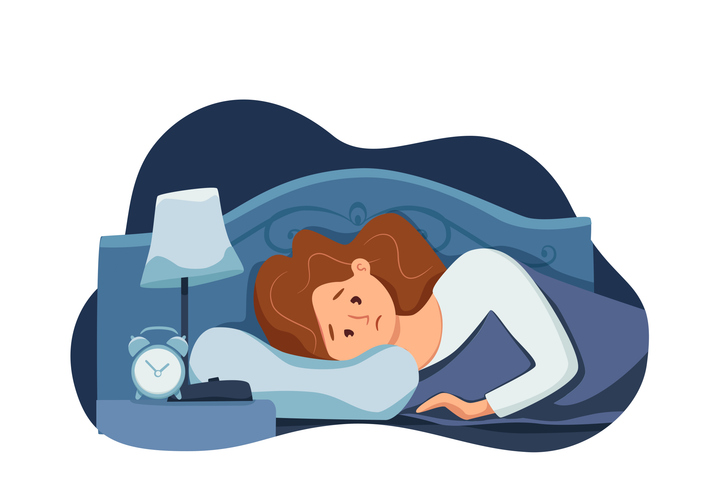The Science of Swift Sleep Solutions

When Sleep Won't Come: How a Single Session Therapy Can Transform Your Nights
Picture this: It's 1:49 AM. You're staring at the clock, calculating how many hours until your alarm goes off. The familiar dread sets in as your mind races through tomorrow's obligations. Sound familiar? You're not alone—nearly 40% of adults wrestle with sleep problems each year.
But here's what might surprise you: meaningful change doesn't require months of therapy. Research shows that single-session interventions can significantly improve sleep by targeting the very patterns keeping you awake.
The Hidden Architecture of Sleeplessness
Most people think insomnia is simply "not being able to sleep." In reality, it's a complex dance between three key players:
🔹 Worry loops that trap your mind in endless scenarios
🔹 Beliefs about sleep that create pressure and anxiety
🔹 Mood triggers that activate your nervous system at the worst possible times
These aren't character flaws or signs of weakness—they're learned patterns that can be unlearned, often more quickly than you'd expect.
Why One Session Can Spark Real Change
Traditional thinking suggests that deep-rooted problems require lengthy treatment. But sleep researchers have discovered something remarkable: the breakthrough often happens in a single "aha" moment.
Think of it like untangling a knotted necklace. You don't need to trace every twist—you just need to find the one loop that, when released, lets everything else fall into place.
Single-session therapy works because it:
✅ Identifies your specific sleep saboteurs (not generic advice)
✅ Interrupts the pattern that's been running on autopilot
✅ Gives you one powerful tool to use tonight
✅ Builds immediate confidence in your ability to change
The Science of Swift Sleep Solutions
Research reveals that brief interventions succeed by targeting what researchers call "sleep effort"—the harder you try to sleep, the more elusive it becomes. It's like trying to remember someone's name; the moment you stop forcing it, it appears.
Key finding: People who receive single-session sleep interventions report better sleep quality within just one week. Not because they've solved every life problem, but because they've shifted one crucial belief or behavior.
What Actually Happens in These Sessions
Imagine sitting down with someone who truly gets it. No judgment about your 2 AM phone scrolling or your collection of sleep aids. Instead, you explore:
🔹 Your unique sleep story (when did nights become battlegrounds?)
🔹 The hidden rules you've created around sleep
🔹 One specific change that fits your actual life
🔹 A concrete plan for tonight
This isn't about perfection—it's about progress you can feel immediately.
The Convenience Paradox of Better Sleep
Here's a counterintuitive truth: adding small challenges to your routine can actually make sleep easier. Just as cooking one meal builds resilience, creating gentle "friction" before bed—like a short stretching routine or writing three sentences in a journal—can signal your brain that sleep is approaching.
This paradox works because it replaces anxious anticipation with purposeful action. You're no longer passively waiting for sleep; you're actively creating conditions for it.
Your Sleep Breakthrough Starts With One Question
If you could change just one thing about your relationship with sleep, what would create the biggest ripple effect in your life? Would it be:
🔹 Quieting the 3 AM worry spiral?
🔹 Releasing the pressure to get "perfect" sleep?
🔹 Breaking the Sunday night dread cycle?
🔹 Finding peace with waking up during the night?
Notice how even considering this question shifts something. That's the power of focused intervention—it cuts through the noise to what matters most.
The Path Forward
Single-session therapy isn't magic—it's strategic. It recognizes that you don't need to fix everything to sleep better. You just need to shift the one thing that's keeping the whole system stuck.
Whether you're facing occasional rough nights or chronic sleep struggles, remember: transformation doesn't always require a long journey. Sometimes, it just takes one conversation, one insight, one new approach to break the cycle.
Tonight can be different. And that difference can start with a single session therapy focused entirely on giving you back your nights.
✅ Ready to explore how single-session therapy could help your sleep? The first step is recognizing that change is possible—and you've already taken that step by reading this far.
Start Now!
Online therapy where your next 15 minutes could change your next 15 years. Stop scrolling. Start transforming. One session. Real science. Lasting change.
Begin your breakthrough →
